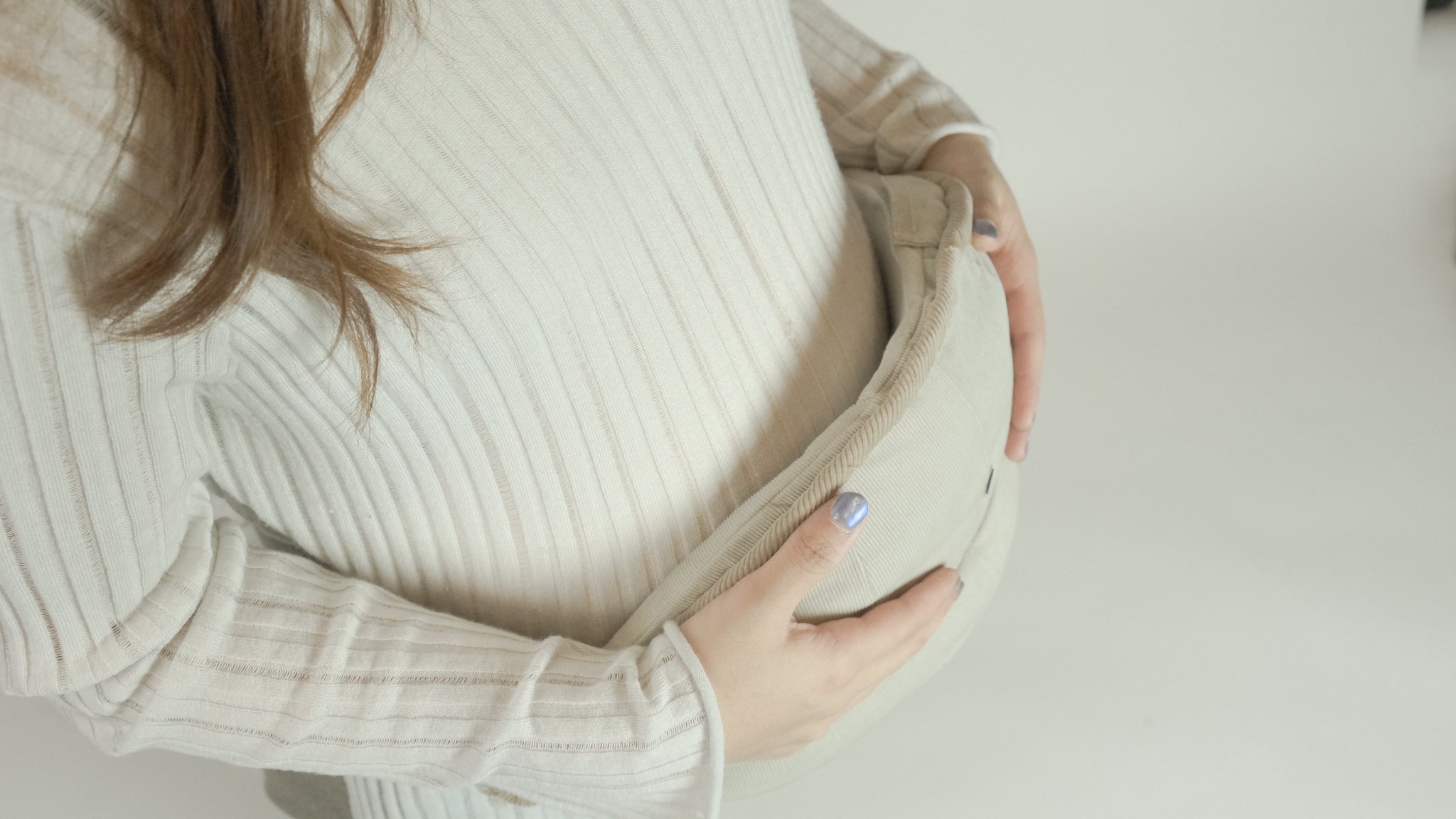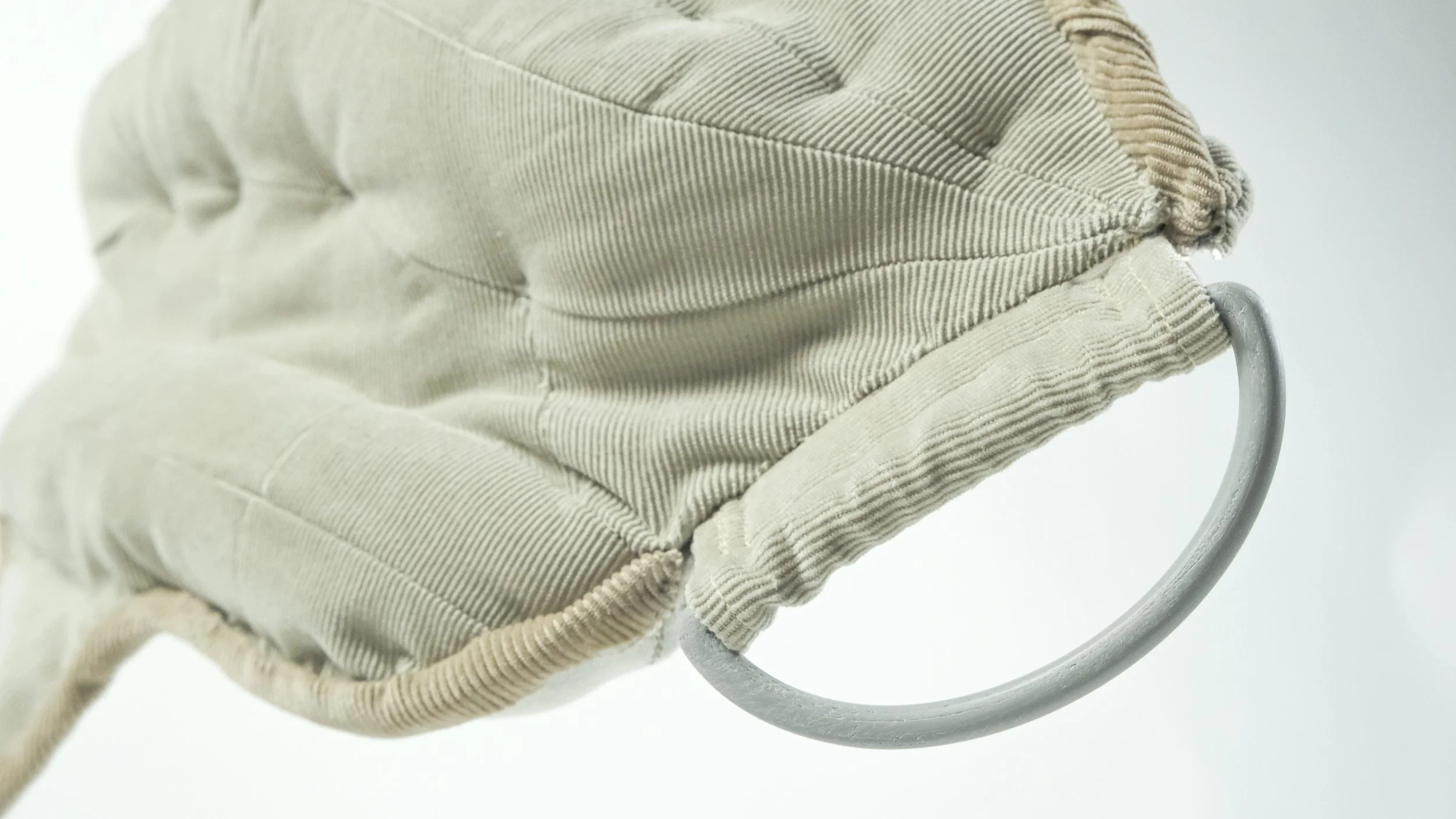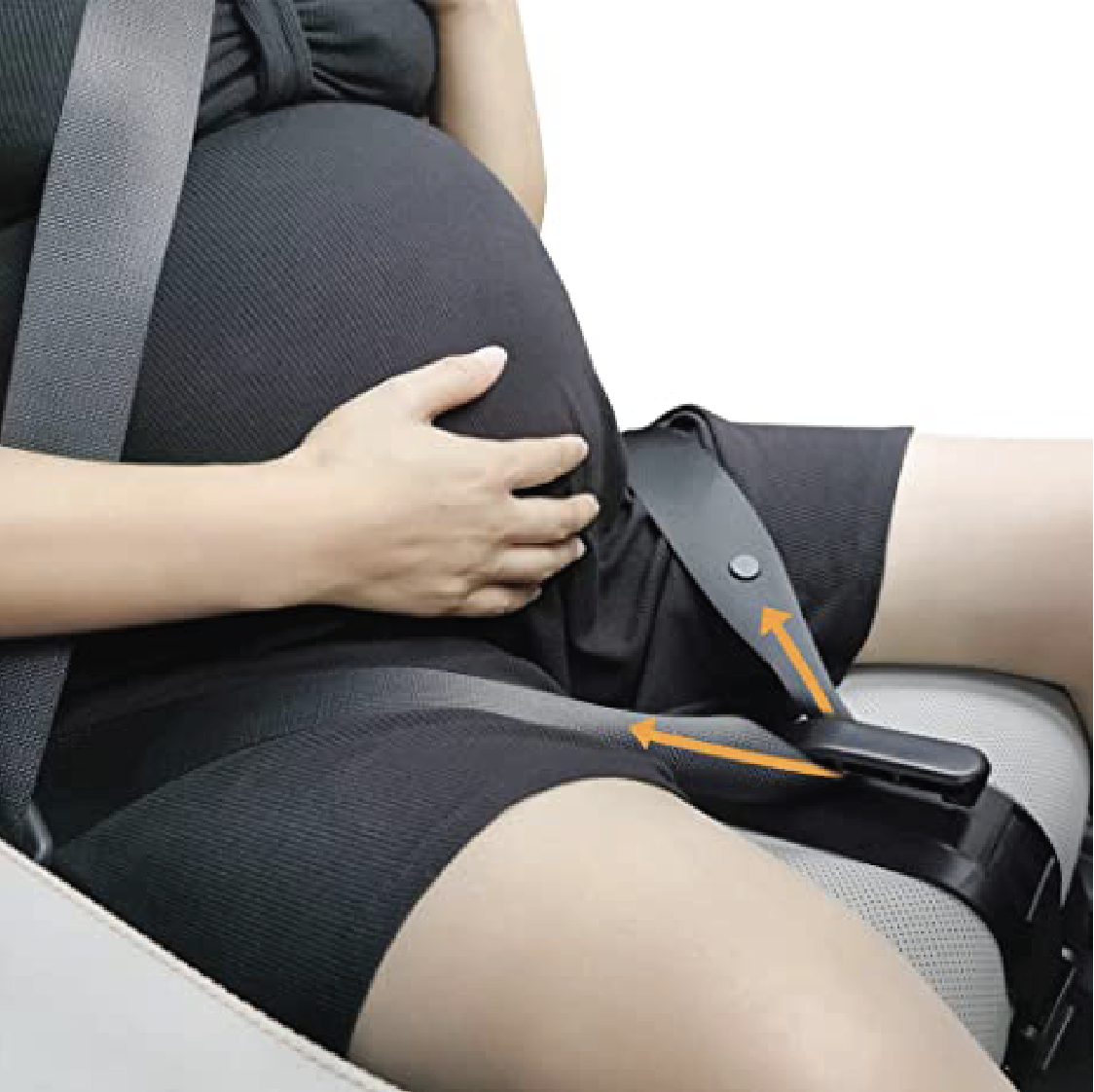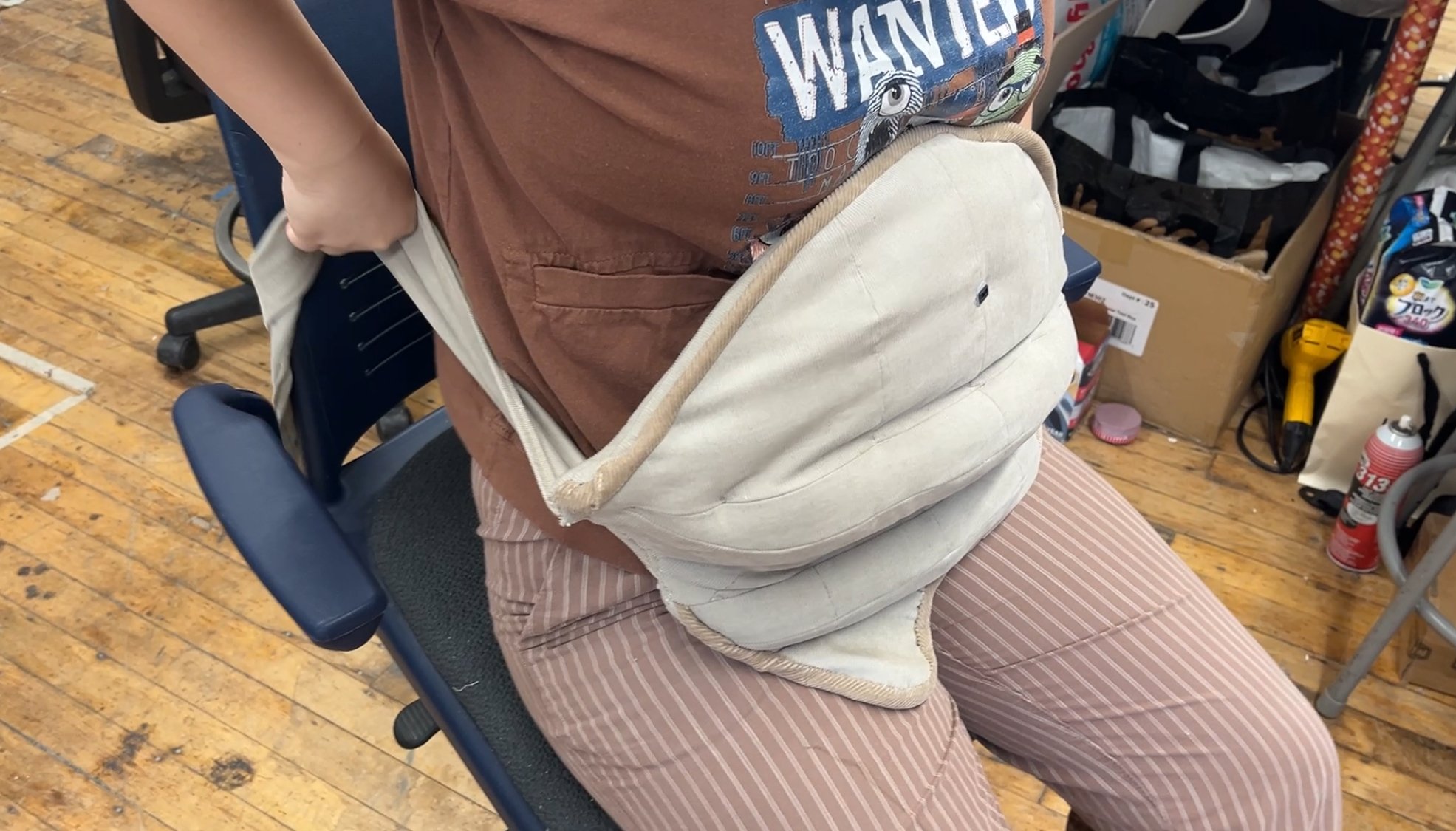
Safe Driving While Pregnant
Belta
Belta is a seat belt accessory to reduce the impact from the lap belt to the pregnant abdomen and stabilizing the lap belt in a correct position. The device also detect and notify pregnant woman when the distance from their belly to the steering wheel is less than 10 inches.
Main Features
Stabilizing seat belt position by positioning the lap belt between different thickness fabrics.
IR distance sensor to detect the distance between steering wheel to the pregnant belly.
Noticing vibrator placing on the lap to prevent abdominal discomfort.
D rings allows users to tie the strap into a comfortable position. The band can be changed to suit for all widths of pregnancy.
Research President
Background
University of Michigan states that each year in the U.S., 170,000 pregnant women are in some type of accident of which 68% report being injured. There are an estimated 3,000 pregnancies lost every year because of car crashes.
Redelmeier states in the report that there was no appreciable change from baseline collision rates before pregnancy. The rate of car accidents jumped by 77% in the stage of pregnancy. Car accident rates drop sharply in the third trimester when the baby is born.
Among all vehicle crashes involving pregnant women, 77% of them were not wearing seat belts . 53% reported that the belt was uncomfortable.
Wearing seat belt
Studies have shown that proper seat belts significantly reduce fetal fatalities in minor and moderate car crashes.
Correct way to wear seat belt for pregnancy
Sadly, seat belt could also be FATAL!
Seat belts could also cause a fetus fatal in a severe car accident. In some cases, women have had lacerations in their uterus when they experienced a crash (even minor crash is possible), not directly under the waistband, but behind the uterus. This is because of an indirect load on the belt where the force was transmitted from the other side. Severe tearing of the uterus can lead to placental abruption.
Pregnancy-related factors
Common pregnancy-related factors can contribute to human error while driving. Impaired concentration, commonly referred to as “baby brain,” appears frequently during pregnancy due to occasional sleep disruption.
Nausea
Fatigue
Case Study 1
The estimated equivalent barrier speed is less than 24 kph. The 27-year-old female (170 cm, 91 kg) driver was 35 weeks pregnant at the time of the crash. She was wearing the three-point belt and the airbag deployed. In addition to AIS 1 contusions, she sustained two horizontal lacerations approximately 6.4 cm apart on the left posterior side of the uterus (AIS 3), apparently from indirect loading of the lap belt. A partial abruption was also diagnosed (AIS 4). A decision was made to deliver the baby by cesarean section within 3 hours of the crash.
Existing Product Analysis
Pregnancy seat belt adjuster
The adjuster transfers the force acting on the abdomen to the thigh.
Jennifer Saxton, a certified children safety technician, criticized the fragility of this product since it is simply made of plastic, and the adjuster also changes the shape of the seat belt.
Design Objectives
Detecting and notifying pregnant women’s distance between the steering wheel and their belly
Reduce the impact of the seat belt on the abdomen.
Must comply standards under NHTSA (National Highway Traffic Safety Administration) for FMVSS 209 Seat Belt Assemblies as follows:
1. Must fit occupants whose dimensions and weight range from those of a 5th percentile adult female (height of 4’11”, weighing 46.3 kg and having a waist circumference of 599 mm) to those of a 95th percentile adult male (height of 6’01”, weighing 97.5 kg and having a waist circumference of 1080 mm).
2. The width of the webbing in a seat belt assembly shall be not less than 46 mm.
3. The procedure must include a step-be-step description of the methodology to be used.
Distraction
The American College of Obstetricians and Gynecologists (ACOG) advises that women should use a 3-point restraint while pregnant, with the shoulder belt placed diagonally above the abdomen and the lap belt positioned below the abdomen.
"I didn't sustain any major injuries, and all my minor injuries were caused by the safety features in my car. I had chemical burns on my hands and bruises on both arms where the airbags came out, I also had pain in my chest and face from the airbags. The seat belt also gave me bruises across my chest and on the bottom of my belly where I was told to wear the belt during pregnancy. Because of the seatbelt the doctors were worried about placental abruption or internal bleeding.”
————Crickett Holmes, a mum-to-be, shared about her low-speed crash with a snow plow that unexpectedly started making a U-turn in front of her.
Case Study 2
Design Requirements
Additional Requirements
1. Must reduce the pressure from the lap belt to the pregnant woman’s belly.
2. Keep pregnant women’s driving position properly.
3. Must not change all the features of the original seat belt.
4. Must not slide in the event of an accident or emergency braking.
5. Must not affect driving.
Prevent seat belt from slide into incorrect position
Design Process
User Journey
Coding Process
Design Concepts
Finalized Concept
Phase I: Pattern Making
Phase II: Electronics Assembly
User 1: 34-year-old. 7 months pregnant
User 2: 26-year-old. 4 months pregnant
New Feature: D ring
Final Look
Stabilising seat belt position by positioning the lap belt between different thickness fabrics.
Phase V: Binding and Finishing
Model Refinement
Technology
Works-like Prototype
Model Making Process
Phase IV: Assembly
User Testing
Circuit Diagram
Phase III: Back Cover Shaping
Feedback:
· Overall comfort is very good and the contact with the belly feels intimate;
· The band used to hold the device in place feels distorted and does not fit the body well.
Feedback:
· The switch is easy to operate and doesn’t feel any uncomfortable;
· The haptic feedback is a little bit weak but can still feel it;
D rings allows users to tie the strap into a comfortable position. The band can be changed to suit for all widths of pregnancy.
































































